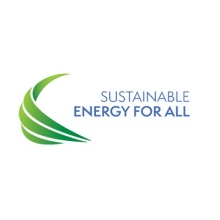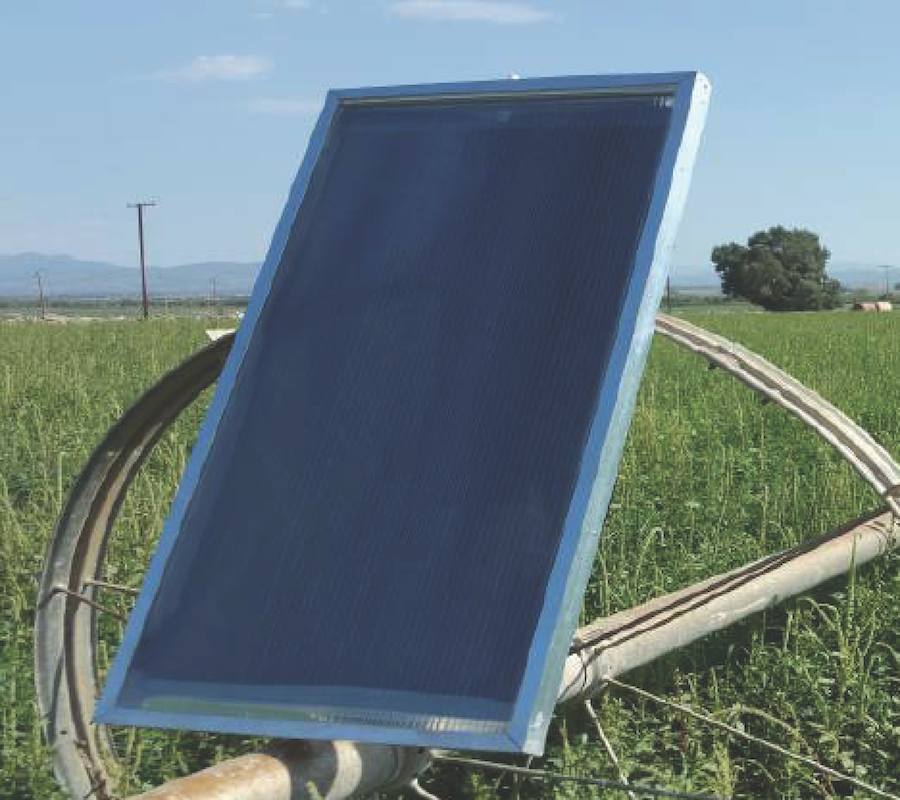

| Member | Action | Date |
|---|---|---|
 Adetayo Adegbemle
Adetayo Adegbemle
|
Posted Nigeria Clean Cooking Initiative on Discussion
Hi, This is more of an appeal for technical partnership with experienced organizations and individuals, than an appeal for funds. There is no doubt that the Clean Cooking Initiative world wide needs some new directives and approach. I have decided to take the Clean Cooking campaign on two ends, 1) directly to villages, where it is needed, and 2) policy advocacy to lawmakers and government departments. Nigeria no doubt has the market and any solution or technology be scaled once the buying power of the people are taken into consideration. However, to achieve this, I will be requiring support, mainly technically, and resources. There is no way to start this campaign without the ability to profer alternatives and empowering women and children in the process. I am ready to share the concept notes with anyone that might interested. I can be reached on powerupnigeria@Gmail.com I look forward to reading from you. Adetayo Adegbemle(for PowerUp Nigeria) |
Aug 21 2019, 12:14 AM |
 Haerul Fuad
Haerul Fuad
|
Replied
to
GSMA - Community power white paper.pdf
Welcome GSMA Keuangan Kelompok Bank Dunia Indonesia
|
Aug 22 2018, 5:07 AM |
 Dr.Sukumar Kar
Dr.Sukumar Kar
|
Posted Climate Change on Blogs
Climate change is one of the greatest challenges facing the world today. Its impacts can already be seen across the globe. World already is facing impacts from climate change and will inevitably see those impacts in the future. The 2007/2008 Global Human Development Report (HDR) demonstrated that climate change is happening and that actions must be taken to reduce its impacts and reduce the extent of that change. Impacts from climate change caused by increasing levels of greenhouse gases (GHGs) in the atmosphere are expected to lead to a myriad of problems that affect human development. Negative impacts may include damages from more frequent natural disasters and sea-level rise, strains on food production, harm to human health, and many others. If not addressed, climate change can restrict people’s choices, slow down and undermine development gains, and have a negative impact on human development in general. The Global HDR calls for international action to address both the mitigation of climate change and adaptation to the impacts of climate change. This recommendation is based on the fact that, even if emissions of greenhouse gases were reduced drastically today, emissions that have already been released would still have an impact in the immediate future, because most greenhouse gases stay in the atmosphere for long periods of time. For example, in 30 years the environment can only absorb half of the CO2 contained in the atmosphere. Global Gross Domestic Product (GDP). If temperatures increase up to 5-6°C, which would be possible under business as usual scenarios, climate change would result in a 5-10% loss in global GDP, with developing countries suffering costs in excess of 10%, even when only market impacts, such as losses to agriculture, energy use and forestry, were included. If non-market impacts are included, such as environmental and health damage, the estimates for damages are as high
To reduce the risks from climate change, emissions must be significantly reduced by 50% by 2050 and by beginning to adapt to existing climate variability and future climate change. Looking beyond 2020, it is difficult to speculate about the costs of reduction and what each country will need to do to mitigate their emissions. However, a significant global shift will be necessary to avoid dangerous climate change. Climate change is one of the greatest challenges facing the world today. Its impacts can already be seen across the globe. World already is facing impacts from climate change and will inevitably see those impacts in the future. The 2007/2008 Global Human Development Report (HDR) demonstrated that climate change is happening and that actions must be taken to reduce its impacts and reduce the extent of that change. Impacts from climate change caused by increasing levels of greenhouse gases (GHGs) in the atmosphere are expected to lead to a myriad of problems that affect human development. Negative impacts may include damages from more frequent natural disasters and sea-level rise, strains on food production, harm to human health, and many others. If not addressed, climate change can restrict people’s choices, slow down and undermine development gains, and have a negative impact on human development in general. The Global HDR calls for international action to address both the mitigation of climate change and adaptation to the impacts of climate change. This recommendation is based on the fact that, even if emissions of greenhouse gases were reduced drastically today, emissions that have already been released would still have an impact in the immediate future, because most greenhouse gases stay in the atmosphere for long periods of time. For example, in 30 years the environment can only absorb half of the CO2 contained in the atmosphere. Global Gross Domestic Product (GDP). If temperatures increase up to 5-6°C, which would be possible under business as usual scenarios, climate change would result in a 5-10% loss in global GDP, with developing countries suffering costs in excess of 10%, even when only market impacts, such as losses to agriculture, energy use and forestry, were included. If non-market impacts are included, such as environmental and health damage, the estimates for damages are as high
To reduce the risks from climate change, emissions must be significantly reduced by 50% by 2050 and by beginning to adapt to existing climate variability and future climate change. Looking beyond 2020, it is difficult to speculate about the costs of reduction and what each country will need to do to mitigate their emissions. However, a significant global shift will be necessary to avoid dangerous climate change. |
Jul 13 2018, 3:48 AM |
 Dr.Sukumar Kar
Dr.Sukumar Kar
|
attach
in
library
Climate change (2).docx
Show more
|
Jul 13 2018, 3:47 AM |
 Dr.Sukumar Kar
Dr.Sukumar Kar
|
Replied
to
Drinking water from Poluted water or Sea water
It is a nice concept.
|
Jul 13 2018, 2:16 AM |
 walter Ivison
walter Ivison
|
Posted Water from the air and Accelerated growth of plants. on Blogs
World Environmental Solutions and Dewpoint Systems of Hawaii have combined their two technologies enabling a containerized system of water from the air production and the accelerated growth of plants for human consumption that can be taken to normally unacceptable climatic conditions. WES is well known for its MultiGen and its "water from the atmosphere" technology: when this is combined with the Dewpoint's dewponics-accelerated growth system the combined system has the ability to not only make power, water and cool air, but the Dewpoint system utilizes only the temperature of the newly made water and allows that water to be used elswhere. The floating plant pots in baths of this cool water draws the cool temperature into the soil and roots. These floating pot racks would fit neatly beside each other and thus prevent evaporation of the cool water into the atmosphere above from the cooling tank.
|
Jun 04 2018, 7:08 PM |
 dan bicz
dan bicz
|
Replied
to
Are you aware of any Clean Energy Mini-Grids in Southern Africa?
Hi Dean, Based on the date of the replies (2014), is your note from 2018? I will drop a quick email to confirm. Dan Bicz. TSPMGroup.com and AfricaKilowatt.com
Dear All,
This is the fifth time that I've written this message (not sure why much of the text has been deleted previously so I'll keep this very short). Please see the 1-page flyer attached. I'm now finalising the framework for the "greenfield" part of this programme, which aims to demonstrate the commercial viability of clean energy mini-grids in currently unserved regions of developing countries. Current target countries are in Southern Africa: Botswana, Lesotho, Mozambique, Namibia, South Africa and Tanzania. Scale is a key point and we're not considering anything less than 50kW, although clusters of communities are an option, where relevant. We want to avoid any conflict or duplication, so please let me know if you're aware of, or involved with, any other similar activity). Happy for any replies on C4D, or please email be on dean.cooper at unep.org
Best, Dean |
Jun 04 2018, 6:50 PM |
|
|
Updated Global Status of Renewable Energy 2017 on Discussion
REN21 published its Renewables 2017 Global Status Report (GSR), the most comprehensive annual overview of the state of renewable energy. Download the full report in several languages, infographics and highlights on the website: http://ren21.net/gsr-2017/ |
Jun 04 2018, 6:47 PM |
|
|
Updated 2017 Progress Report FINAL digital.pdf on Documents
A new report released today from the Global Alliance for Clean Cookstoves highlights the continuing progress toward achieving universal adoption of clean cooking by 2030. The Alliance’s 2017 Progress Report estimates that a total of 30.8 million clean and/or efficient cookstoves and fuels were distributed in 2016, bringing the total from 2010-2016 to more than 80 million, putting the Alliance ahead of its interim 100 million x 2020 goal. Learn more at www.cleancookstoves.org/2017Progress |
Jun 04 2018, 6:47 PM |
|
|
Updated Cities Storing Energy on Documents
I would like to pass on 2 documents today. The first ENDING ENERGY POVERTY was the topic of a webinar on the Security and Sustainability Forum. The powerpoint in this paper provide a great range of stats related to who can access electricity... This was useful to me as I pondered conflict and conflict-prone country development.
The second document THE ROLE OF SMART BATTERIES IN RESILIENT CITIES can be found on this link http://meetingoftheminds.org/role-smart-batteries-resilient-cities-23789?utm_source=Meeting+of+the+Minds+Newsletter+List&utm_campaign=646324ec93-RSS_EMAIL_CAMPAIGN&utm_medium=email&utm_term=0_cdb70a5ce7-646324ec93-57879869&mc_cid=646324ec93&mc_eid=0bf807514c
I would very much appreciate any comments or observations from members of this group.... |
Jun 04 2018, 6:47 PM |

